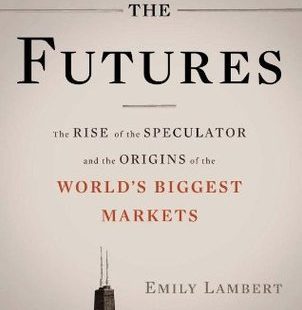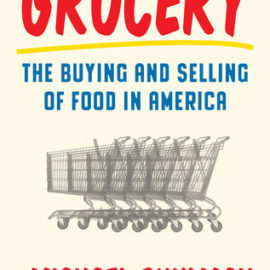Disclosure: I may earn affiliate revenue or commissions if you purchase products from links on my website. The prospect of compensation does not influence what I write about or how my posts are structured. The vast majority of articles on my website do not contain any affiliate links.
The Futures: The Rise of the Speculator and the Origins of the World’s Biggest Markets by Emily Lambert
Rating: ★★★★
Date Finished: March 18th, 2018
Reading Time: A day
This is a captivating book providing a cohesive historical account of the futures markets in Chicago. As someone who lives in Chicago and deals with futures markets each day, it would not be reasonable for me to ask Emily Lambert for any more. Am I biased because she provided a hilariously accurate account of the founder of the firm I work for? Am I biased because she took the time to explain just how much liquor you get when you order a drink at Ceres Cafe? Am I biased because the tall brick cold storage warehouse in Fulton Market that she described in detail now houses one of my favorite restaurants? Somewhat.
The truth that others seem to be wrestling with is that this is not a futures textbook. I’ve come across quite a few futures textbooks. They don’t resemble this in format or in diction. The back cover describes The Futures as a “rich and dramatic history of commodities exchanges” and that’s exactly what it is. It’s a valuable, fun, and endearing book that aggregates a large portion of Chicago’s history into barely two hundred pages. Dare I say it should be on any Chicagoan’s must-read list.
Even since moving here, I have seen the continued transformation of Fulton Market as the last wholesalers have been (happily, I might add) bought out and replaced by restaurants, social clubs, and other establishments that are quickly transforming it into one of the hottest neighborhoods in America. I guess this book helped validate my paying exorbitant rent, but it also gave me a lot to think about. It is at times a struggle to remain grounded in my appreciation for where I came from while simultaneously mixing with the bourgeois, so I really appreciated the sense of admiration that Emily had for the pioneering laborers who made Chicago what it is today.
Find this review and others on Goodreads.com



